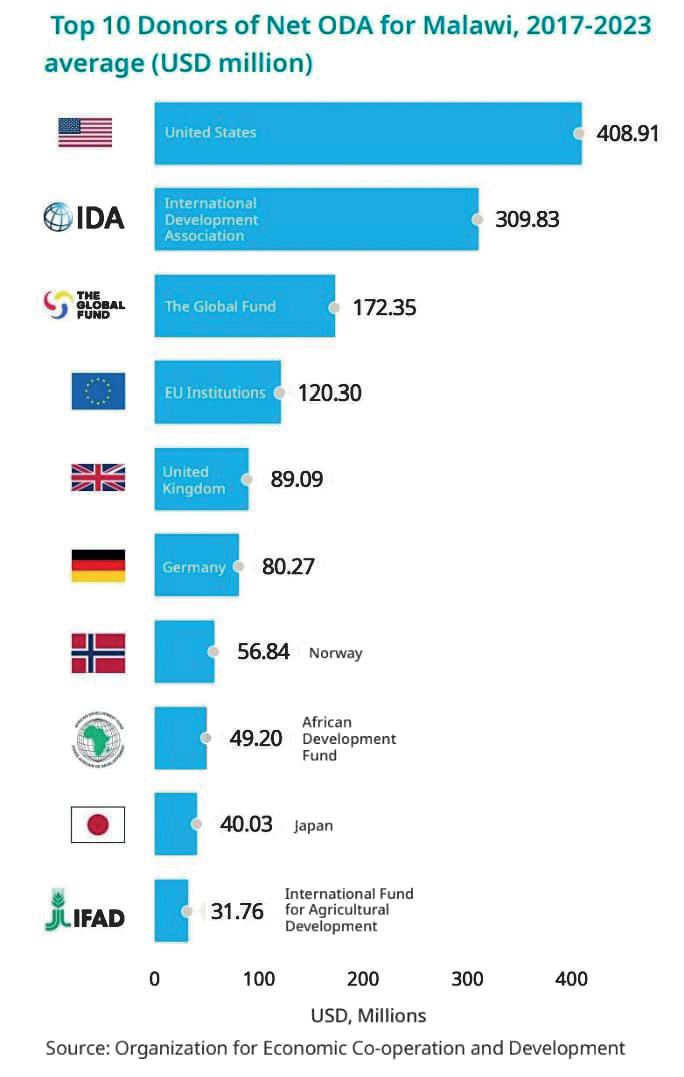
Malawi Beyond 2027: Navigating Funding Shifts and Seizing Emerging Opportunities
Key Business Points
- Donor funding reduction: The United Nations warns that most donors will reduce their funding to Malawi beyond 2027, straining the country’s social sector spending and exacerbating macroeconomic vulnerabilities.
- Alternative financing needed: The decline in Official Development Assistance (ODA) will require alternative financing mechanisms to fill the gaps and support key sectors such as health, education, and economic development.
- Diversification of revenue streams: Malawi’s business community should consider diversifying revenue streams, including increasing foreign direct investment (FDI) and remittances, to reduce dependence on ODA and mitigate the impact of funding cuts.
The United Nations Children’s Fund has released an analysis on the trends in Official Development Assistance (ODA) and its implications on social sector financing for children in Malawi. The report warns that the reduction in ODA, which has been the largest source of external inflows to the country, will strain public budgets and exacerbate poverty and inequality. This will have a profound impact on key sectors such as health, education, food security, and economic development, unless alternative financing mechanisms are put in place.
According to the report, ODA has averaged $1.6 billion (about K2.8 trillion) between 2017 and 2023, compared to FDI, which has averaged $144 million (about K252 billion), and remittances, which have averaged $219 million (K383 billion). The UN notes that ODA flows to Malawi constituted 82 percent of total external inflows in 2023, highlighting the country’s heavy reliance on donor funding.
Economics Association of Malawi president Bertha Bangara-Chikadza observed that the dwindling ODA has significant implications for Malawi, as grants from donor countries or international organizations have played a vital role in addressing the country’s socio-economic challenges. The reduction in ODA grants will impact the delivery of essential services and hinder poverty reduction efforts, he said. In Chichewa, this can be referred to as "kukoma kwa mafunzo", or a lack of funds, which will have far-reaching consequences for the country’s development.
The Ministry of Finance and Economic Affairs has projected that the financing of the national budget through tax revenues will increase to 53.6 percent in 2025/26, while grant financing will reduce to 14.2 percent. This highlights the need for increased tax revenue collection and diversification of revenue streams to reduce Malawi’s dependence on ODA. The business community should consider investing in key sectors such as agriculture, manufacturing, and tourism to stimulate economic growth and reduce poverty. As the Chichewa phrase "ulimike mkulu sindikufa" suggests, the country’s economy needs a strong foundation to thrive, and this can be achieved through prudent financial management and strategic investment.
What are your thoughts on this business development? Share your insights and remember to follow us on Facebook and Twitter for the latest Malawi business news and opportunities. Visit us daily for comprehensive coverage of Malawi’s business landscape.
- Malawi’s Tourism Boom: A K1 Trillion Opportunity for Business Growth! - March 4, 2026
- Bad Loans Fall: Positive Shift Signals Economic Recovery - March 3, 2026
- Bank Levy Deductions Spark Public Outcry and Economic Debate in Malawi - March 3, 2026
